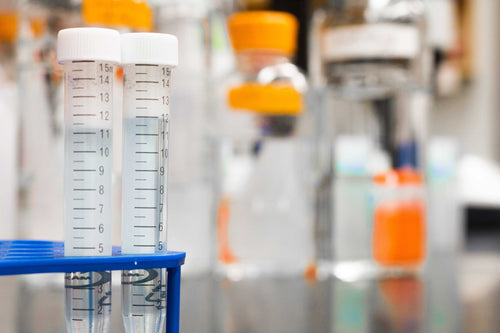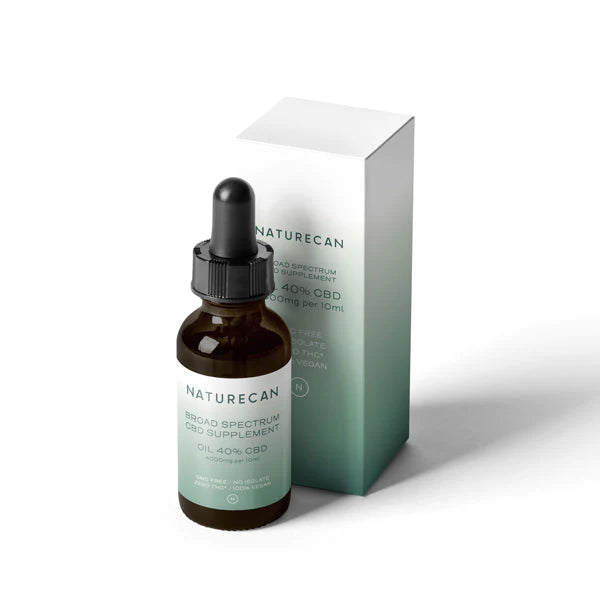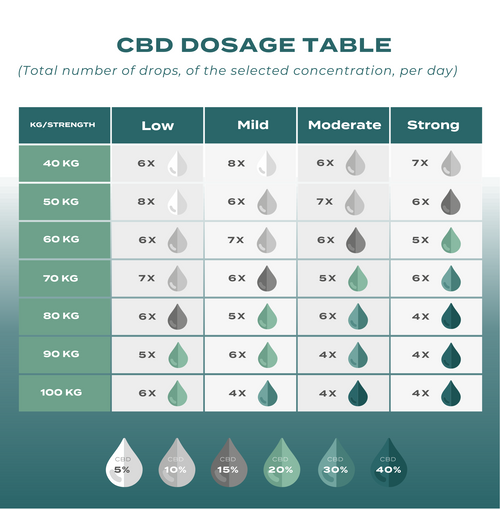How long does cannabis stay in your system? | CBD alternatives

Drug tests can indicate recent cannabis use by measuring THC within blood, saliva, urine and hair – with the windows for detection varying from 2 hours to 90 days. Learn everything you need to know about how long cannabis stays in your system and how CBD could be an effective, non-intoxicating alternative.
What is THC?
Before we get into detection windows, it’s essential to understand exactly what THC is, as it’s this illegal substance that will flag up on any drug test.
Tetrahydrocannabinol (THC) is the primary compound found in cannabis. It is one of over 140 cannabinoids present in the plant, but it is the one most widely recognised for its psychoactive effects. When cannabis is consumed, THC binds to cannabinoid receptors in the brain, particularly the CB1 receptors, which are concentrated in areas associated with thinking, memory, pleasure, coordination, and time perception.
The effects of THC can include altered sensory perception, euphoria, relaxation, and an increase in appetite. However, it can also cause side effects such as impaired memory and coordination. The intensity of these effects can vary depending on the method of consumption, the dose, and an individual’s tolerance.
What’s the detection window for different drug tests?
The duration that cannabis (THC, or tetrahydrocannabinol, specifically) stays in your system can vary based on several factors, including individual metabolism, frequency of use, and the sensitivity of drug tests. Here’s a general guideline for different cannabis drug tests:
| Drug test type | Detection window | Need to know |
|---|---|---|
| Urine | 3-30 days | Differs on cannabis usage |
| Blood | 2-30 days | Differs on cannabis usage |
| Saliva | 3 days | N/A |
| Hair | Up to 90 days | N/A |
How long does cannabis stay in urine? | Urine tests
This is the most common drug testing method. Although windows for detection can vary depending on the individual and the amount of cannabis consumed, according to a clinical review in 2017, the detection of THC in urine is based on the following times after last use:
- Infrequent use: for occasional users, such as smoking a single joint, THC metabolites can typically be detected in urine for up to 3 days.
- Moderate use: for regular users (around 4 times per week) THC may be detectable in urine for up to 10 days.
- Heavy use: For chronic users (several times per day) THC metabolites can be detected in urine for several weeks – up to and over 30 days.

How long does cannabis stay in blood? | Blood tests
THC is generally detectable in the bloodstream for a shorter duration compared to urine. For infrequent users, it might be detectable for up to 2 days. However, in heavy use cases it can be up to 30 days.
How long does cannabis stay in saliva? | Saliva tests
Saliva tests have the shortest detection window – generally around 72 hours after use. This was confirmed by a study in 2020.
These tests are used often as an alternative to urine tests due to their ease of use. The simple mouth swabs are less intrusive and are almost impossible to tamper with due to being carried out by the tester themselves.

How long does cannabis stay in hair? | Hair tests
Hair follicle tests have a longer detection window. THC metabolites can be present in hair for up to 90 days or more after use. In line with normal hair growth, taking a 1.5-inch hair segment close to the scalp can provide a timeline of cannabis use over the past 3 months.
It’s important to note that these are rough estimates, and individual variations can occur. Factors such as body weight, metabolism, and the potency of the cannabis product used can influence how long THC remains detectable.
THC metabolisation: How does THC move through the body and break down?
The metabolisation of THC (tetrahydrocannabinol) involves a series of processes in the body. When a person consumes cannabis, THC enters the bloodstream and is distributed throughout the body. The primary route of THC metabolism is through the liver, where it undergoes various chemical transformations.
1. Absorption
THC is absorbed into the bloodstream through the lungs (if cannabis is smoked or vaporised) or through the digestive system (if cannabis is ingested). When THC is ingested, it takes longer to reach the bloodstream compared to inhalation.
2. Distribution
THC is carried by the bloodstream to various tissues and organs throughout the body, including the brain, where it exerts its psychoactive effects.
3. Metabolism
The liver plays a crucial role in metabolizing THC. The primary metabolite formed is 11-hydroxy-THC, which is believed to be more potent than THC itself. This metabolite contributes to the overall effects of cannabis.
4. Further metabolism
After the initial metabolism in the liver, both THC and its metabolites undergo further transformations, primarily through a process called glucuronidation. This involves attaching a glucuronide molecule to the THC or its metabolites, making them more water-soluble and facilitating their elimination from the body.

5. Elimination
The water-soluble metabolites are then excreted from the body through urine and, to a lesser extent, through faeces. The elimination half-life of THC can vary between individuals, but it is generally in the range of a few days. Factors such as frequency of use, dose, and individual metabolism can influence how long THC and its metabolites remain detectable in the body.
It’s important to note that drug tests often detect the presence of THC metabolites rather than THC itself. Detection times can vary, but they are influenced by factors such as the sensitivity of the test, the frequency of cannabis use, and individual metabolism.
CBD as a non-intoxicating alternative to THC
CBD (cannabidiol) is a non-intoxicating alternative to THC (tetrahydrocannabinol) primarily because it does not produce the same psychoactive effects that THC is known for. The key reasons behind CBD’s non-intoxicating nature include:
Choose a CBD product that works for you
Interaction with cannabinoid receptors
Both THC and CBD interact with the endocannabinoid system in the human body, but they do so in different ways. THC primarily binds to CB1 receptors, which are concentrated in the central nervous system and the brain, leading to the characteristic psychoactive effects. CBD, on the other hand, has a low affinity for CB1 and CB2 receptors. Instead, it modulates the activity of these receptors indirectly and interacts with other receptors and neurotransmitters, resulting in its non-intoxicating effects.

Activation of CB2 Receptors
While THC primarily activates CB1 receptors in the central nervous system, CBD interacts with CB2 receptors, which are more abundant in the peripheral tissues, immune cells, and the gastrointestinal system. This differential binding contributes to the non-intoxicating nature of CBD.
Antagonistic effect on CB1 receptors
CBD has been shown to have a modulating effect on CB1 receptors, acting as a partial agonist or antagonist. This means that CBD can influence the activity of CB1 receptors without fully activating them, which contrasts with the direct and full activation produced by THC.
Impact on neurotransmitters
CBD influences various neurotransmitter systems, including serotonin receptors. Its interactions with these systems contribute to its anxiolytic (anxiety-reducing) and anti-depressant effects without causing the euphoria associated with THC.
Removing the high
One of the main reasons people use CBD is for its therapeutic properties without the “high” or altered state of consciousness associated with THC. This makes CBD appealing for those seeking the potential health benefits of cannabinoids without the psychotropic effects.
Remember, although CBD is non-intoxicating, it may still produce subtle changes in mood or relaxation, and its effects can vary among individuals. Additionally, CBD derived from hemp contains only trace amounts of THC (0.3% or less), which is not enough to produce intoxicating effects. Find out even more about CBD and its effects here. It’s also important to understand how CBD interacts with medications.
If you’re looking to explore the benefits of CBD, and how it can act as an effective, non-intoxicating alternative, here is essential information about the benefits of CBD oil.


Tips for detoxing from cannabis
Detoxing from cannabis involves clearing the body of THC and its metabolites. The process can vary from person to person based on factors such as frequency of use, metabolism, and the amount consumed. Here are some key tips that may help speed up the detoxification process:
Hydration
Drink plenty of water to help flush toxins out of the body through urine. Adequate hydration supports the natural detoxification process.
Healthy diet
Eat a well-balanced, nutritious diet. Include foods rich in antioxidants, such as fruits and vegetables, to support overall health. Some people also suggest consuming foods high in fibre, as it may help with the elimination of metabolites through the digestive system.
Exercise
Regular physical activity can aid in the detox process by promoting circulation and increasing metabolism. However, avoid intense exercise just before a drug test, as this may temporarily elevate THC levels in urine.
Sauna or Sweating
Sweating can help eliminate toxins from the body. Saunas or exercise that induces sweating may be beneficial, but it’s essential to stay hydrated during these activities.
Time
It seems obvious but ultimately, give it time for your body to naturally clear THC and its metabolites from your system. The duration depends on various factors, including frequency of use, metabolism, and individual differences. For infrequent users, it may take a few days to a couple of weeks, while heavy or long-term users may require several weeks or even months.
FAQS on Cannabis use, intoxication, THC and CBD
How long does it take for cannabinoid receptor to recover from cannabis use?
The recovery time for cannabinoid receptors can vary based on several factors, including the frequency and duration of cannabis use, individual metabolism, and overall health. Cannabinoid receptors, particularly CB1 receptors found in the brain, can become desensitised or downregulated with prolonged cannabis use. The process of recovery involves the normalisation of receptor sensitivity.
How long can you take CBD for?
The duration for which you can take CBD largely depends on the purpose for using it and individual factors. CBD (cannabidiol) is generally considered safe for long-term use, and many people incorporate it into their daily routines for various reasons. However, there are some potential CBD side effects to take into account.
Can you still drive using CBD?
CBD itself is not known to impair driving or cause intoxication. Unlike THC, the psychoactive compound found in cannabis, CBD does not produce the same mind-altering effects. As a result, using CBD alone is generally not expected to affect your ability to drive safely.
Is CBD addictive?
CBD is not addictive. Unlike THC, which is the psychoactive component of cannabis responsible for the “high” and can be addictive, CBD does not produce the same psychoactive effects. Learn more about CBD vs THC.
Can you drink alcohol when taking CBD?
While many people use both CBD and alcohol independently, it’s essential to be aware of potential interactions and individual responses when using them together. This can include increased drowsiness, sedation and impaired coordination.
How long does it take CBD to get out of your system?
The time it takes for CBD to leave your system can vary based on several factors, including individual metabolism, the dosage and frequency of CBD use, and the method of administration. Unlike THC, CBD is not known to be stored in fat cells, and its elimination from the body is generally faster – from a few days up to the maximum of around a week.
Do CBD products contain THC?
Broad-spectrum CBD products, which is the type of CBD created by Naturecan, contain a range of cannabinoids but are processed to remove THC. The goal is to provide the benefits of multiple cannabinoids without the presence of THC. However, some trace amounts of THC may remain in broad-spectrum products.
Is CBD detectable in drug tests?
Pure CBD isolate should not show up on most drug tests because standard drug tests typically target THC (tetrahydrocannabinol), the psychoactive compound in cannabis. However, it’s important to note that many CBD products (such as broad-spectrum CBD) can contain trace amounts of THC, which could potentially show up on a drug test, especially if the product is labelled as full-spectrum or if it’s derived from marijuana rather than hemp.
Is Delta 8 the same as THC?
Delta-8-tetrahydrocannabinol (Delta-8 THC or D8 THC) is a chemical compound found in cannabis, and it is structurally similar to the more well-known Delta-9-tetrahydrocannabinol (Delta-9 THC or simply, THC). Delta-8 can produce euphoria, relaxation, and other effects similar to Delta-9 THC, but it is generally reported to be less potent.
Does caffeine counteract cannabinoids?
Caffeine and cannabinoids, such as CBD and THC, have distinct effects on the body, and their interactions can vary based on the individual, however there is no direct evidence to suggest that caffeine counteracts cannabinoids in any way.
How are cannabinoids excreted?
Cannabinoids, including THC (tetrahydrocannabinol) and CBD (cannabidiol), are excreted from the body through a combination of metabolic processes including in the liver, as well as elimination through urine and faeces.
Can Muslims use CBD?
The use of CBD by Muslims or followers of any religious faith is a personal decision, and it may be influenced by individual beliefs, cultural considerations, and legal regulations in the respective region.
It’s important to note that religious views and practices can vary among individuals within a faith community.
Cannabis in your system: what you need to know
The duration that cannabis (specifically THC and its metabolites) remains detectable in the body varies based on several factors, including individual characteristics, frequency of use, the amount consumed, and the sensitivity of the drug test. When it comes to testing methods, here is what you need to know.
Urine Testing – from 3 days for a single use to up to 30 days for regular and heavy use.
Blood testing – from 2 days from infrequent users to up to 30 days for regular and heavy use.
Saliva testing – this is the shortest detection window at around 72 hours from last use.
Hair testing – this has the largest detection window with up to 90 days.
CBD offers an excellent alternative to cannabis with its removal of THC – delivering some of the same potential benefits without the unwanted psychoactive effects.
At Naturecan, we offer a wide range of third-party tested CBD oils, CBD edibles including our best-selling CBD gummies, and CBD capsules for you to try.
Browse our selection of premium CBD products to help support any treatment plan aimed at reducing the symptoms of cannabis withdrawal.



